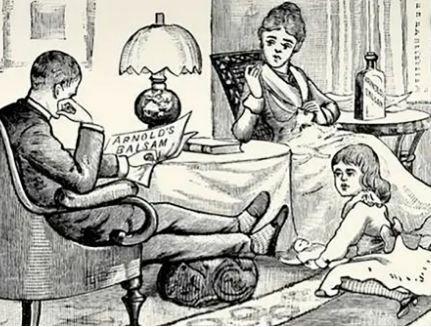Significance/Meaning: * “Aggettivi, pronomi interrogative, che vengono utilizati nelle frasi interrogative (p.e. Che ora è?; How much persone ci sono?). Avverbi interrogative, avverbi di luogo, di tempo, di quantita usati in frasi interrogative (eg Dove goes?; When will arriverà?; How much?)." / Adjectives and interrogative pronouns, which are used in interrogative sentences (eg: ‘What time is it?’; 'How many people are there?'). Interrogative adverbs, adverbs of place and quantity, used in interrogative sentences (eg: ‘Where are you going?’; ‘When will he (she) arrive?’; 'How much?').
*Definition taken from the Dizionario Italiano Sabatini – Coletti edits dalla Casa Editrice Giunti.
Usiamo spesso nelle domande, siano dirette o indiretti, alcuni pronomi and avverbi interrogativi come chi, what, what, how much, ma is worth the dire che ci sono altri. Osserva. / We use more often in sentences, whether direct or indirect, some interrogative pronouns and adverbs such as who, what, what, how much, but it is worth saying that there are others. Watch.
 Chi = invaribile che pronoun indicates persona or animale. Osserva le phrase. / Who = invariable pronoun that indicates person or animal. Note the sentences.
Chi = invaribile che pronoun indicates persona or animale. Osserva le phrase. / Who = invariable pronoun that indicates person or animal. Note the sentences.
1) Chi sa il name of that ragazza di rosso? / Who knows the name of that girl in red?
2) Get out with chi Anna is uscita ieri? / Can you tell who Anna went out with yesterday?
3) Per chi sleep questi cioccolatini? / Who are these bonbons for?
4) Chi for? / Who speaks?
 Che = invariable pronoun che indicates la cosa (un’azione oppure un oggetto). Osserva le phrase. / Que = pronoun that indicates a thing (an action or an object). Note the sentences.
Che = invariable pronoun che indicates la cosa (un’azione oppure un oggetto). Osserva le phrase. / Que = pronoun that indicates a thing (an action or an object). Note the sentences.
1) Paolo, Che serve question? / Paolo, what is this for?
2) Che scene oggi? / What will we have for dinner today?
3) Che cantate Laura prefersce? / Which singer does Laura prefer?
4) Che sapore di gelato ti piace? / Which ice cream flavor do you like?
 Which is = if you use per specify the quality or type. Può to indicate anche persone the sews. There is due form, a single profile and alternative for the plural that I can use to use al femminile and al maschile. Osserva le phrase. / Qual = used to specify quality or type. It can also indicate people or things. It has two forms, one for the singular and one for the plural, and can be used in the feminine and masculine. Note the sentences.
Which is = if you use per specify the quality or type. Può to indicate anche persone the sews. There is due form, a single profile and alternative for the plural that I can use to use al femminile and al maschile. Osserva le phrase. / Qual = used to specify quality or type. It can also indicate people or things. It has two forms, one for the singular and one for the plural, and can be used in the feminine and masculine. Note the sentences.
| Gender | single | Plural |
| Maschile / Female | Which is | quali |
1) C’è la tantrum and sizzle. Which is go? / There's dark and light beer. Which one do you want?
2) Which is cantate Laura prefersce? / Which singer does Laura prefer?
3) quali sono i tuoi interessi when l'argomento is Roma antica? / What are her interests when it comes to ancient Rome?
4) the quali ragazzi si riferisce? / Which boys does she mean?
 How much = use to specify the quantity of qualcosa. Per ogni gender (femminile and maschile) c’è a form and c’è anche a specific form for the number (singular and plural. Osserva le phrase. / How much = used to specify the amount of something. For each gender (female and male) there is a form and there is also a specific form for the number (singular and plural). Note the sentences.
How much = use to specify the quantity of qualcosa. Per ogni gender (femminile and maschile) c’è a form and c’è anche a specific form for the number (singular and plural. Osserva le phrase. / How much = used to specify the amount of something. For each gender (female and male) there is a form and there is also a specific form for the number (singular and plural). Note the sentences.
| Gender | single | Plural |
| Maschile | How much | amount |
| female | How much | how much |
1) amount anni ha? / How old is she (he)?
2) how much long did i meet you? / How long have you known him?
3) How much tantrum ne hai già bevuto? / How much beer have you had?
4) how much persone hai già raccontato quella bugia? / How many people have you told that lie to?
Attention! / Heads up!
It is possibile to use i pronomi and gli avverbi interrogative anche nelle esclamative frasi per esprimere irony, ammirazione, sorpresa ecc. / It is possible to use interrogative pronouns and adverbs also in exclamatory sentences to express irony, admiration, surprise, etc.
Isabela Reis de Paula
Brazil School Collaborator
Graduated in Languages with Qualification in Portuguese and Italian
By the Federal University of Rio de Janeiro - UFRJ
Italian - Brazil School
Source: Brazil School - https://brasilescola.uol.com.br/italiano/pronomi-ed-avverbi-interrogativi.htm

